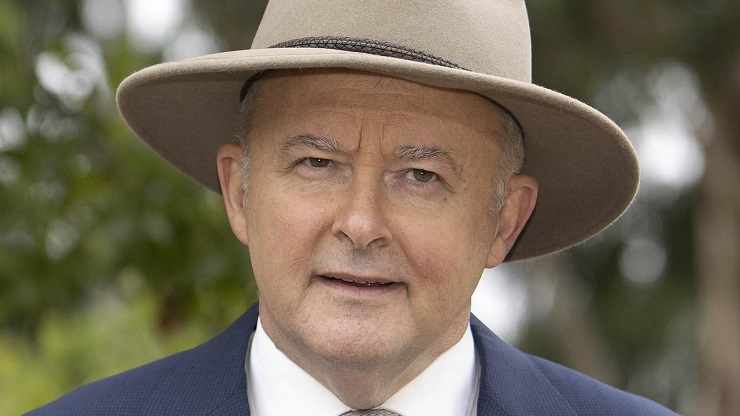On May 23, 2022 parliamentary elections resulted in the swearing-in of Anthony Albanese, head of Australia’s victorious Labor Party, as the country’s new Prime Minister. Many analysts were confident that Australia would see a major shift in its foreign policy as a result of the political reshuffle, as the South Pacific region has seen a palpable shift in the balance of power over the past several years with the rise of China’s military and economic strength.
Australia’s closest geographic neighbor and a major trading partner is New Zealand, with which Canberra has a special relationship. The intensive dialogue between the two states stems from a shared history and culture (both countries were British dominions before the end of World War II), as well as extensive economic ties.
On June 10, 2022, Australian Prime Minister Anthony Albanese met with his New Zealand counterpart Jacinda Ardern in Canberra. The main purpose of the talks between the two politicians was to discuss rising regional tensions, the partnership between the two countries and the deportation of New Zealand citizens who have committed crimes in Australia, to their homeland.
New Zealand’s Prime Minister said the election of Albanese as Australia’s leader marked a “reset” in Australia-New Zealand relations after some friction and misunderstandings during the period when Scott Morrison led the Australian government. According to Ardern, Australia is the friendliest country to Wellington, and the two have developed very close ties with each other. The New Zealand Prime Minister compared the interaction between the two states to that of families.
Such positive rhetoric for Australia could be down to the fact that New Zealand, a relatively small country of 5.1 million, desperately needs allies in the region. Because of the New Zealand government’s environmental policy, the country legislated its nuclear-free status as early as 1987, effectively imposing a ban on nuclear vessels entering New Zealand ports. It is for this reason that the state is not part of any pro-American defense alliance and has to rely on its own forces for security.
Also an important factor in New Zealand’s pro-Australian political line is Beijing’s growing ambitions. Each year, China steadily continues to increase its presence in the New Zealand economy. In 2008, New Zealand was the first Western Bloc country to sign a free trade agreement with China, and in 2017 Wellington became a participant in China’s Belt and Road infrastructure project. Despite the financial benefits of engaging with China, the New Zealand leadership realizes that if it does not diversify its trade channels, the country risks falling completely into Beijing’s sphere of influence.
During the meeting, Albanese said he and his New Zealand counterpart wanted to take Australia-New Zealand relations to a whole new level, leading to more jobs as well as many opportunities for mutually beneficial cooperation.
As of now, the main point of convergence between Canberra and Wellington is their shared desire to prevent China from expanding its positions in Oceania, a strategically important space with 24 small island entities. The leaders of both countries are aware that if they do not act together, Australia and New Zealand will lose all their outposts in the South Pacific.
The Albanese-led Australian Labor Party, unlike the Liberal Party led by his predecessor, Scott Morrison, actively supports the fight against climate change, endorses a carbon-neutral policy and is fully committed to accelerating the transition to green energy. As a major player in the global coal market, Australia aims to minimize domestic energy costs in order to increase export volumes. Australian leaders also fully realize the inevitable depletion of coal mines in the long term and are therefore interested in a gradual transition to renewable energy sources.
New Zealand, too, has had a policy of switching to renewable energy for many years because the authorities do not want to depend on supplies from outside. During the talks, the representatives of the two countries agreed to embark on several new joint projects related to the development of clean energy.
The main stumbling block to achieving a new level of relationship between Canberra and Wellington is the conflict over the issue of deporting New Zealand criminals from Australia to New Zealand. Ardern is convinced that many returned criminals often have no family or friends in New Zealand and for this reason may face falling below the poverty line as well as becoming involved in crime. She believes that the current situation is frightening and must be resolved as quickly as possible.
Albanese’s reaction to his New Zealand counterpart was rather subdued. The Australian Prime Minister said his country would take the necessary steps and review government policy, but no specific decisions were announced.
At the end of the meeting, Ardern said New Zealand would support the activities of defense regional alliances such as AUKUS and QUAD, of which Australia is a member, but that Wellington would not join them. This can be explained by the fact that the New Zealand leadership does not want to burden the state treasury with an increased defense budget and does not want to cool relations with China, which might curtail some significant joint economic projects if New Zealand becomes a member of organizations whose main task is to confront Beijing.
Consequently, Ardern’s stated “reset” of Australia-New Zealand relations is unlikely to take place. Despite the common desire of the new Australian and New Zealand governments to look after the environment, there are differences between the two countries on many key issues that are getting worse every year. Many of the agreements reached during the June meeting have yet to be implemented. Sooner or later, however, Wellington will have to choose between accepting Australia’s terms and making some concessions to Canberra or falling under China’s sphere of influence and losing its former political and economic opportunities.
Petr Konovalov, a political observer, exclusively for the online magazine “New Eastern Outlook”.
